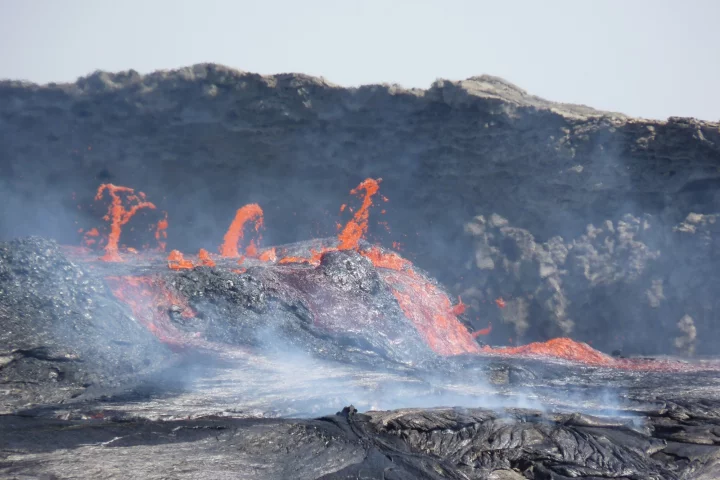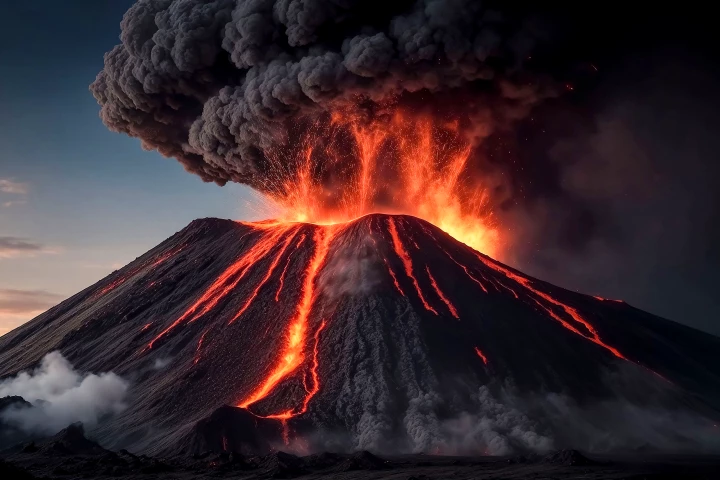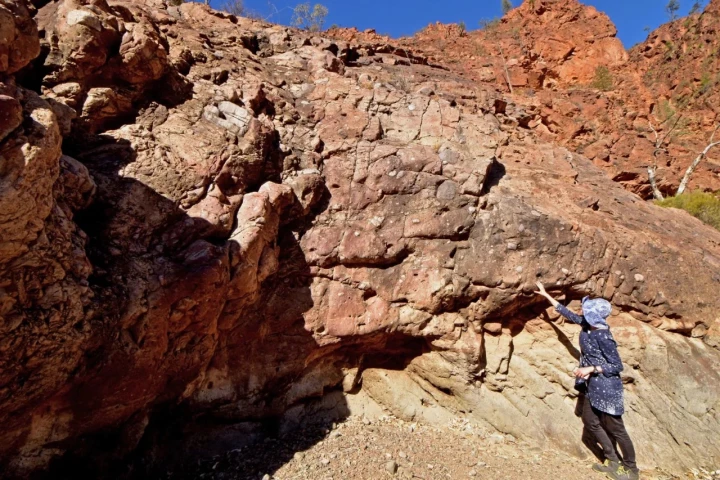volcano
-
Deep in the growth rings of Pyrenean trees lies the strongest evidence yet for what set the Black Death in motion – a direct link between a sudden climate shift and the plague’s arrival in Europe, where it killed millions between 1347 and 1353.
-
The world’s fastest enduro has climbed higher than any motorcycle ever has… unassisted, as part of a Guinness World Record attempt. The record altitude was achieved by a Stark Varg EX, atop Los Ojos del Salado: the world's highest active volcano.
-
For centuries, glaciers have sat like frosty crowns atop slumbering volcanoes, keeping Earth’s fury tucked safely beneath layers of ice. But now, as climate change accelerates and glaciers retreat, the lid may be lifting, and the heat rising.
-
A subtle yet significant geological phenomenon is currently taking place beneath the African continent. Rhythmic surges of molten rocks, pulsing upward like a "heartbeat," are ripping the continent apart to pave the way for a new ocean.
-
Excavations found that the brain of what seems to be a human male contained dark glass formed during the eruption of Mount Vesuvius in 79 CE. The effect can't be explained by lava temperatures alone, but rather a different event from the cataclysm.
-
A climatic mystery about a year that gave summer a deadly pass may have been solved. Using new ice core techniques, scientists have concluded that the dark, chilly year of 1831 was due to the massive eruption of a volcano north of Japan.
-
Pompeii is famous for its uniquely pristine preservation of the daily lives of its residents 2,000 years ago. While most residents were quickly buried under volcanic ash, two newly discovered skeletons reveal unlucky people who suffered a different fate.
-
Scientists have just revealed their findings on what are being described as the most pristine trilobite fossils ever found. The fossils, which show both hard exterior features and soft inner tissues, shed new light on the fascinating creatures.
-
It's rarely great news when an area gets blanketed in volcanic ash – but University of Barcelona researchers have discovered it has a rare combination of useful properties, which make it remarkably useful as an energy storage medium.
-
A massive volcano has been hiding in plain sight on Mars, says new research. Not only is its sheer size noteworthy, but the team believes it might also harbor glacial ice that could be critical for further exploration and Martian settlements.
-
Geologists have shed new light on Earth's built-in thermostat. They say shifting tectonic plates that slowed volcanic activity is likely what caused the extreme ice age that turned the planet into a giant snowball over 700 million years ago.
-
Using microwave instruments to peer deep beneath the surface of the far side of the Moon, researchers have detected a ‘hotspot’ they say is a large subsurface granite mass, suggesting the Moon is more "Earth-like" than we thought.
Load More











